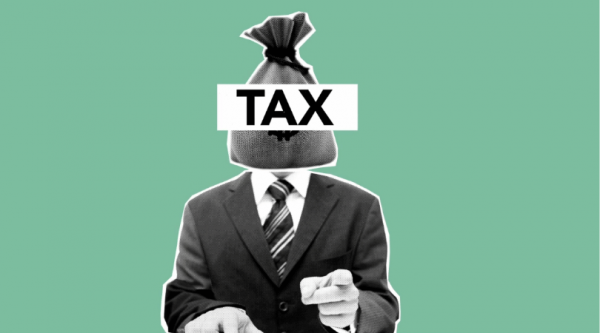IRS’s New Strategy to Navigate the Tax Landscape of Gambling Winnings in the USA Makes Headlines
Gambling is a widespread pastime in the United States, drawing countless individuals into casinos, lotteries and games of chance. While the thrill of casinos is undeniable, it's crucial to comprehend the tax implications that accompany these victories.
Today, you delve into the intricate world of gambling taxation in the US, unpacking the rules, exceptions and reporting requirements that every gambler should know.
Taxation of Gambling Winnings
Regarding your gambling winnings, the IRS keeps a watchful eye. Whether you're hitting the slot machines, playing bingo, or mastering skill-based games like blackjack, your winnings are subject to taxation. The payer will withhold 24% from your earnings and furnish you with IRS Form W-2G to document the transaction. However, the threshold for defining a "substantial amount of money" varies depending on the game:
- $1,200 or more for slot machines or bingo games.
- $1,500 for keno.
- $5,000 for sweepstakes, wagering pools and lotteries.
Keep in mind that this 24% deduction is an estimate and the final amount you owe or receive as a refund will be determined when you file your annual tax return.
State-by-State Taxation Strategies for Sports Betting Operators
Since the US Supreme Court's 2018 decision to overturn the Professional and Amateur Sports Protection Act (PASPA), the sports betting industry has witnessed remarkable growth nationwide. While states enjoy the influx of revenue, sports betting operators navigate a high-stakes game with thin profit margins.
Legal experts Stefi George and Tamara Savin Malvin of Akerman suggest that operators must meticulously assess and compare the taxation approaches of different states to chart a course in these challenging waters.
PASPA's Demise and the Rise of State-Level Sports Betting
Before the fall of PASPA, Nevada held a virtual monopoly on sports betting in the US, legalizing and regulating it back in 1992. However, the Supreme Court's decision handed the power to individual states to determine the legality and regulation of sports wagering. This led to a surge in interest and revenue generation.
The American Gaming Association revealed that illegal sports betting in the US accounted for an astounding $150 billion annually, creating an opportunity for legalized sports betting to bolster state governments' coffers.
Low-Profit Margins in a High-Stakes Industry
Despite the eye-popping figures associated with sports betting handles, operators must grapple with razor-thin profit margins. Many wagers are returned to customers, leaving USA online casinos with only a fraction of the total handle. Moreover, operational costs, including customer acquisition and compliance with stringent regulations, further affect profitability.
In stark contrast, unregulated markets don't bear these high costs. They can offer a more competitive product, intensifying the pressure on licensed operators. States must consider the impact of their regulatory measures on legal operators to maximize tax revenue.
The Complex Landscape of Sports Betting Taxation
States have been wrestling with balancing between incentivizing operators and collecting adequate taxes. Often used for high-revenue industries, there may be more suitable options for sports betting than gross receipts taxes. This is because the gross gaming revenue, the amount of money placed on bets minus the winnings paid out, is often significantly lower than the total wagers. Additionally, gross gaming revenue may include promotional bets, which generate no revenue for operators.
Taxing operators based on gross gaming revenue can lead to taxes imposed on transactions where the operator incurs losses. An example of this issue can be found in New York, where the state introduced a 51% tax rate on gross gaming revenue, seemingly excessive. However, it also includes promotional bets in the revenue calculation, effectively taxing non-existent income and forcing operators to reduce promotional bets, impacting their product offerings.
Geography plays a crucial role, as operators and bettors can easily cross state lines in search of better deals or engage in unregulated betting. Nearby New Jersey, for instance, boasts a significantly lower tax rate for online sports betting at 14.25%, starkly contrasting New York's approach. New Jersey even allows promotional bets to be deducted from gross gaming revenue for operators with in-state casinos, further widening the disparity.














